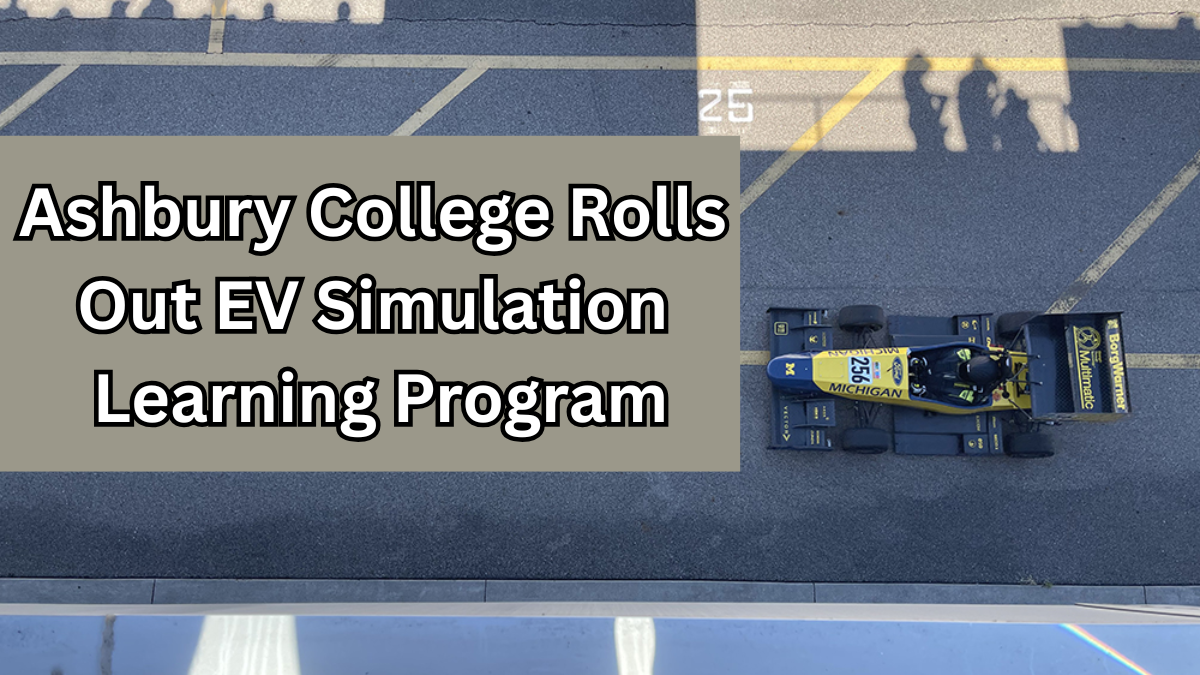Ashbury College has taken a major leap into the future of education by launching its new EV simulation training program. Designed to blend innovation with real-world readiness, the initiative offers students an immersive experience in the rapidly growing field of electric vehicles (EVs).
This move not only strengthens the school’s STEM curriculum but also aligns with the global push toward sustainable transportation and smart mobility solutions.

What is the EV Simulation Learning Program?
The EV simulation training program is a part of Ashbury’s broader strategy to equip students with industry-relevant skills. It provides a virtual yet highly realistic learning environment where students can:
-
Understand the mechanics of electric vehicles
-
Design and simulate EV components
-
Diagnose system issues in real time
-
Explore innovations in EV batteries, powertrains, and autonomous tech
This initiative forms a key segment of the college’s advanced auto learning programs, aiming to prepare students for careers in automotive engineering, green tech, and digital design.
Why It Matters: A Real-World Tech Classroom
The EV training module at Ashbury does more than just replicate car systems — it builds critical thinking and problem-solving skills.
Program Benefits
| Skill Developed | Description |
|---|---|
| Technical Aptitude | Learn about EV motors, regenerative braking, and charging |
| Digital Simulation | Use real-time diagnostic tools and simulation software |
| Team-Based Engineering | Collaborate on projects simulating real auto design labs |
| Environmental Awareness | Understand the ecological impact and benefits of EVs |
Student Reactions and Future Impact
Students are thrilled about the opportunity to learn beyond traditional textbooks. “It’s like stepping into a real-world EV garage, but on a screen,” one student shared.
Faculty members have also highlighted how the auto learning program bridges academic theory with real-world application, particularly for students interested in pursuing automotive or environmental engineering.
Ashbury plans to extend this training model to include hybrid technologies and autonomous vehicle simulations in the coming year.
How It Works: Inside the Virtual EV Lab
The lab uses industry-grade simulation tools. Here’s what students engage with:
-
3D EV modeling software
-
Digital multimeters and circuit testers (virtual)
-
Performance analysis dashboards
-
Live simulation of motor control and energy flow
Ashbury’s Vision for STEM & Sustainability
This initiative reflects Ashbury’s commitment to creating a learning environment that is not just academic, but also adaptive to future technologies. The program supports:
-
Project-based learning
-
Cross-disciplinary teaching
-
Engagement with EV simulation training experts from the industry
-
Partnerships with auto tech companies for mentorship
FAQs
What is EV simulation training, and how is it different from traditional auto classes?
EV simulation training uses digital tools to replicate how electric vehicles work, giving students a hands-on experience without needing a physical car.
Who can participate in this auto learning program at Ashbury?
Currently, it’s available for high school students enrolled in Ashbury’s advanced STEM curriculum.
Do students get certification through this program?
Yes, Ashbury offers a certificate of completion, which adds value to college applications and internships in automotive fields.
Are there any industry tie-ups for this initiative?
Yes, Ashbury is working with EV software developers and auto tech companies to keep the training aligned with current industry trends.
Click here to learn more